10 Essential Tips for Thronebreaker: The Witcher Tales
Here are 10 tips to help you get going in Thronebreaker: The Witcher Tales, from deck-building to role-playing.
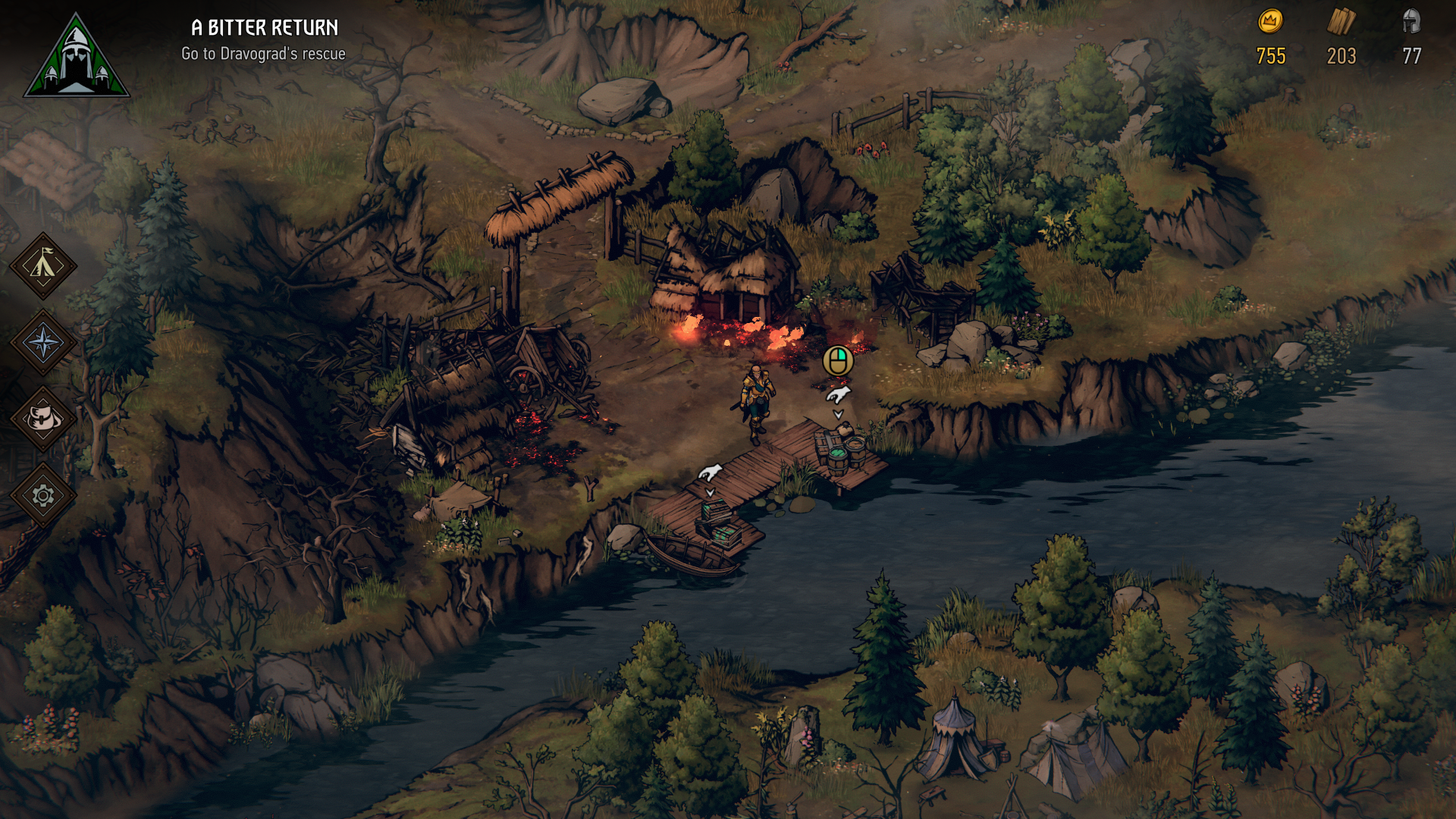
Queen of the castle
Who knew that we'd be getting a new Witcher game this year? Just a few months ago, it seemed that the series was on an indefinite hiatus (unless you count thebooks, or the upcomingNetflix series). But then CD Projekt Red announcedThronebreaker: The Witcher Tales. This single-player role-playing game uses the mechanics of card-battle game Gwent to tell a story about supporting character Queen Meve of Lyria. If you've played the first three Witcher games, you're probably psyched for a new adventure — but you may also be a little hesitant about a brand-new protagonist who tackles her problems with collectible cards instead of swords. Here are 10 tips to help you get going if you've elected to play Thronebreaker this weekend instead ofthat other game.
Credit: CD Projekt Red
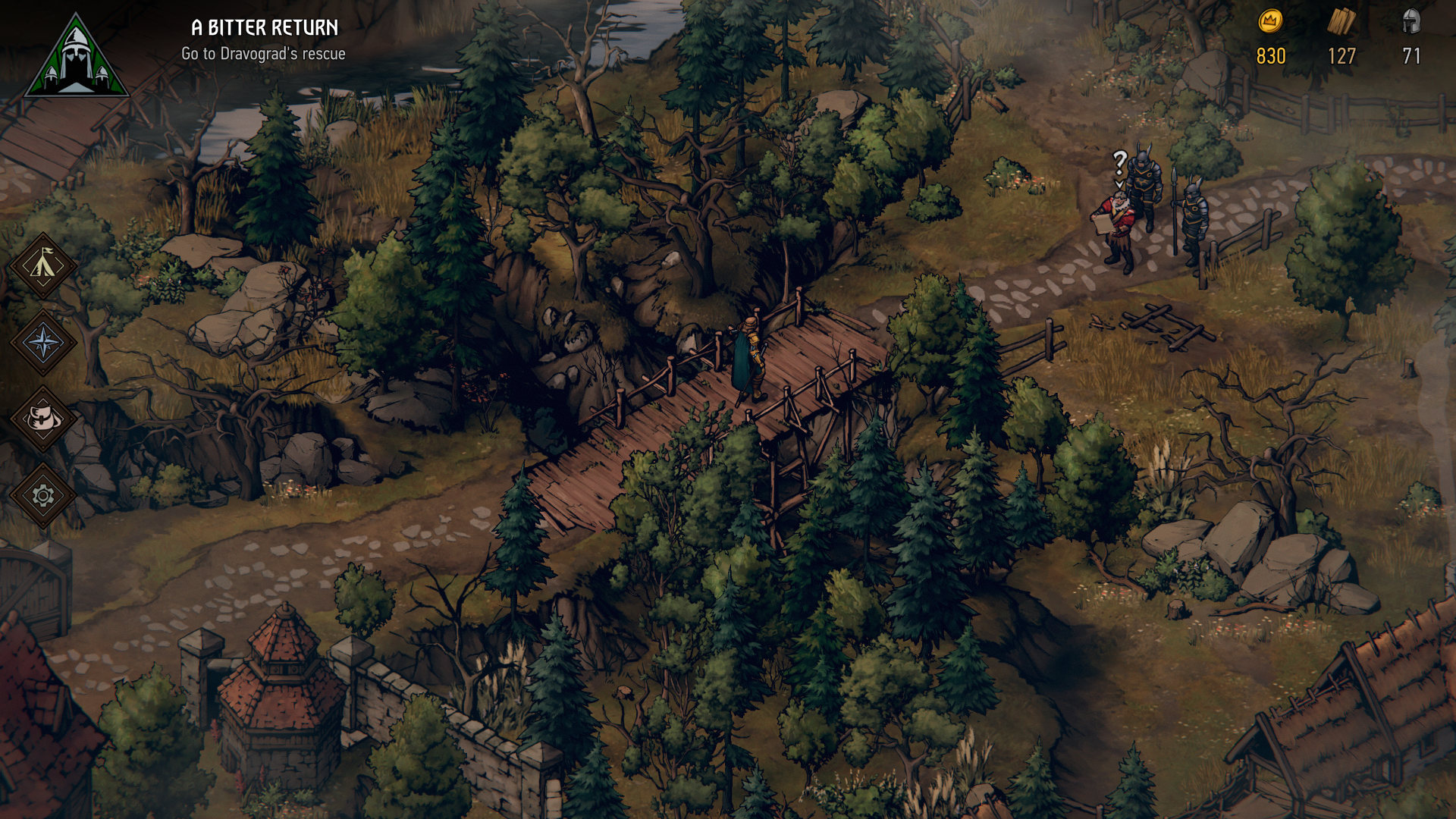
Go off the beaten path
Thronebreaker's tutorial is pretty good, but it actually sends players the wrong message by encouraging them to stay on the road between towns. To upgrade your abilities, complete side quests and even choose certain dialogue options, you'll need plenty of wood, gold and soldiers. You'll get some resources from just playing through the main story, but you'll earn far more if you explore the woodlands, towns and cemeteries of Lyria. If you're willing to apply a little puzzle-solving, you can even discover new, premium cards out in the wild, although you'll usually have to match a key to a nearby lock to do so.
Credit: CD Projekt Red
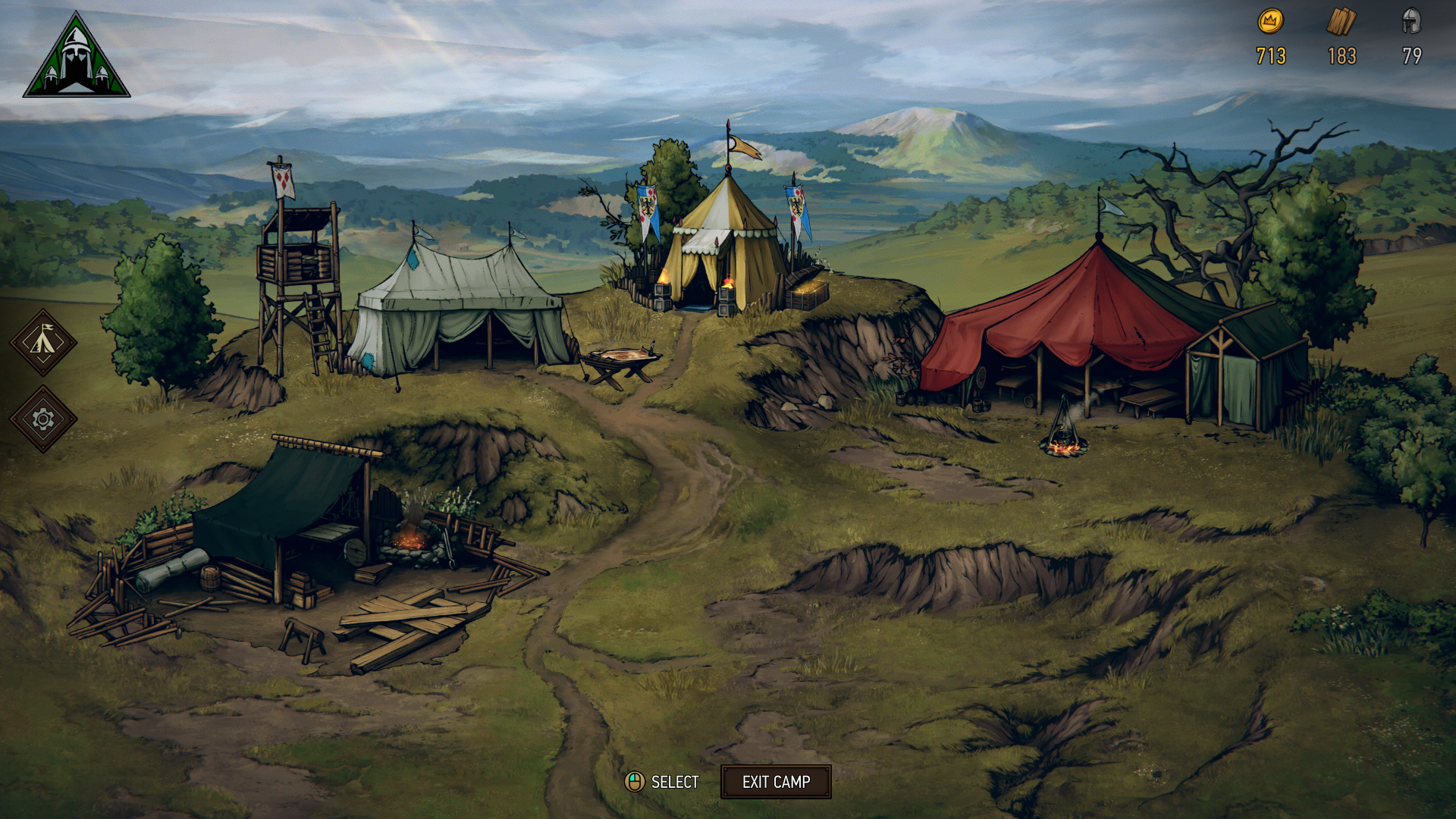
Set up camp frequently
Queen Meve's adventure is not time-sensitive. As such, you can set up camp whenever you feel like it, with no detrimental effect on the story or side quests. And you should visit camp often, because there's a lot you can do there. Having a drink with your advisors can reveal juicy plot details or backstory, while overseeing your troops gives you a chance to tweak your deck. However, arguably the most important thing you can do at camp early on is upgrade your abilities. With enough wood and gold, you can improve everything from Meve's deck capacity to her movement speed. Since early upgrades don't cost much, it's a good idea to invest in them ASAP.
Credit: CD Projekt Red
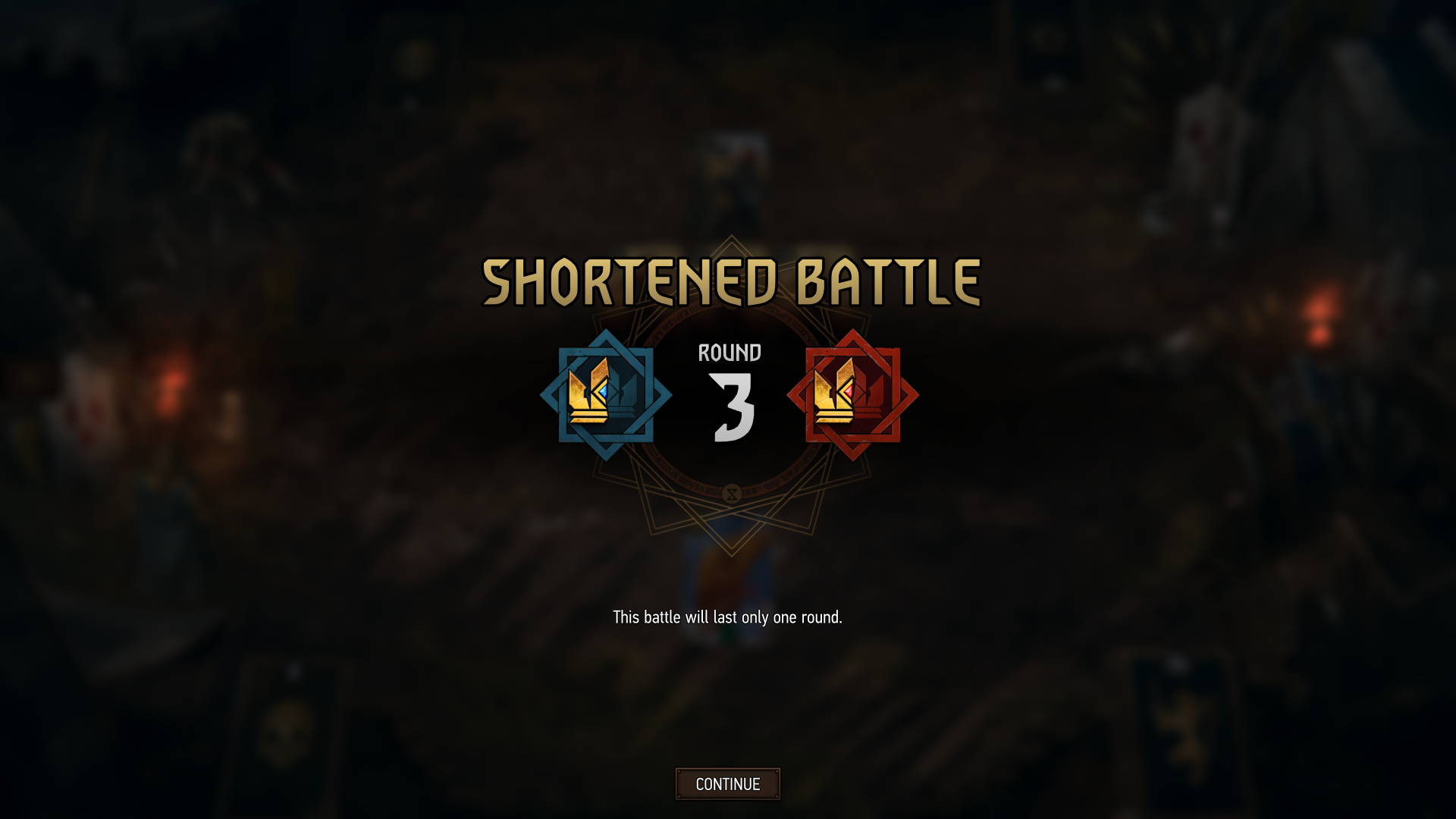
Pay attention to victory conditions
If you've played a lot of Gwent before in The Witcher 3: The Wild Hunt or in the standalone multiplayer game, you'll need to temper your expectations for Thronebreaker. While some battles use the standard "best-of-three-rounds, higher score wins" formula, most of them don't, especially early on. Instead, you'll have to tackle esoteric victory conditions, which can range from destroying only certain units, to taking down enemies simultaneously, to using foes' own abilities against them. Be sure to pay attention to the victory conditions, lest you wind up with a brilliant combo, a high score — and an ugly loss screen staring you down.
Credit: CD Projekt Red
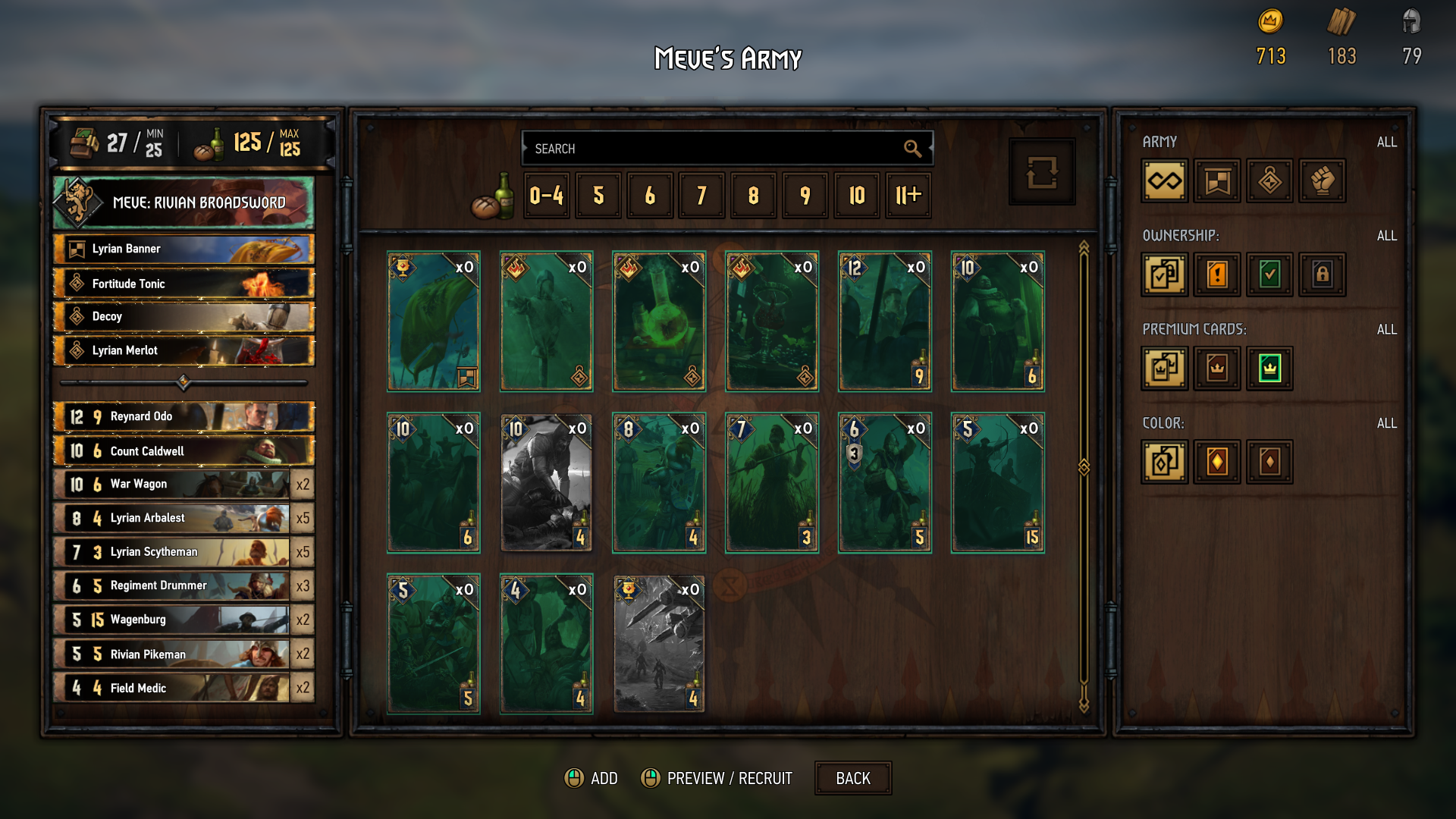
Keep your deck focused
In Thronebreaker, you can have up to 40 cards in your deck, and you need at least 25 to play. (Each card also has a "value," depending on how powerful it is; ignore that for the moment, since you'll naturally find ways to incorporate more powerful cards as you play.) While it may be tempting to pump your deck up to the full 40 as soon as you get enough cards, remember: Doing so is a tradeoff. The fewer cards in your deck, the greater the likelihood that you'll draw the right one when you need it. Granted, having more cards can make your deck more versatile, but in a game that lasts three rounds, at most, precision usually trumps flexibility.
Credit: CD Projekt Red
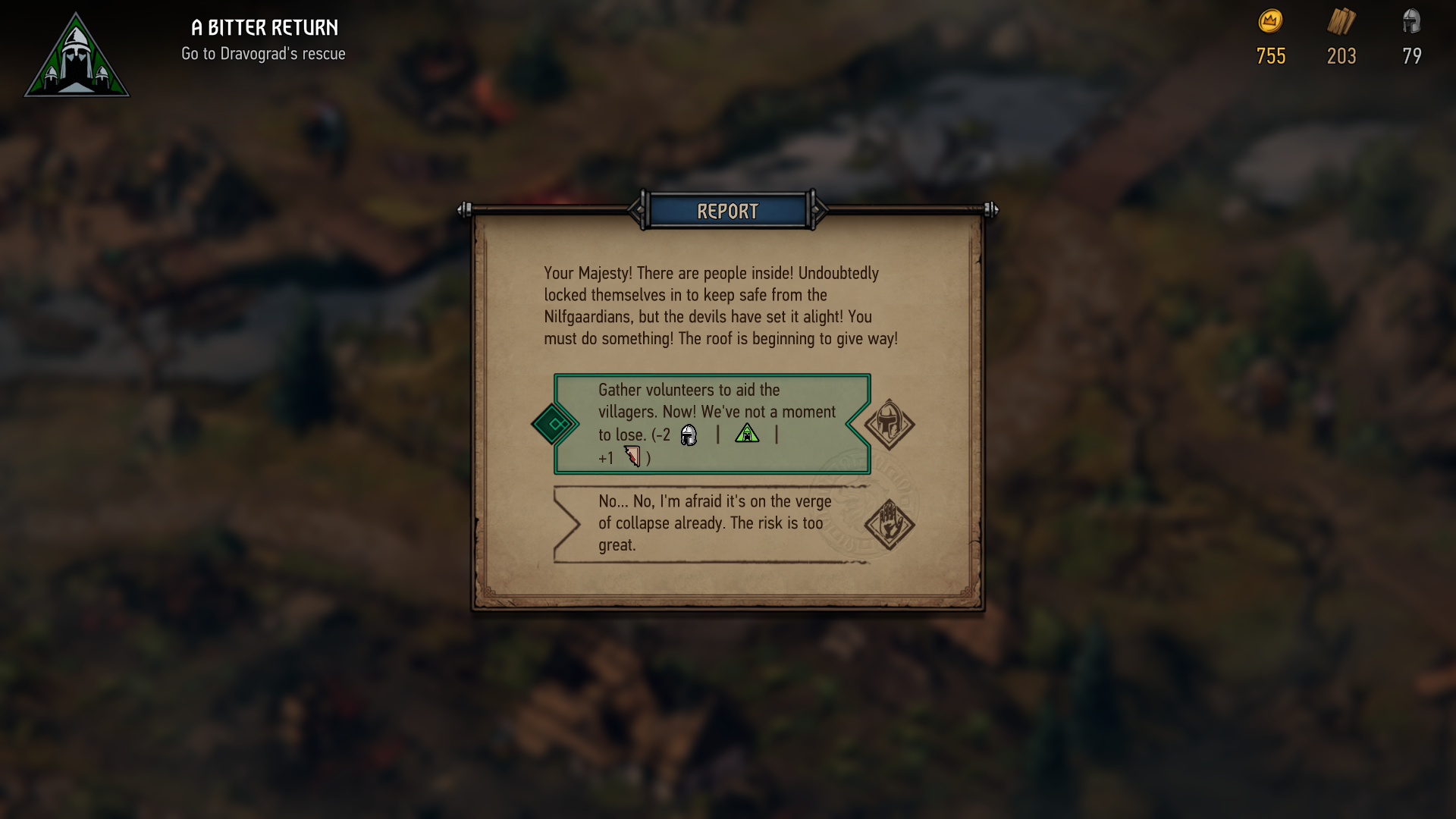
Pump up your army's morale
Your army isn't just an unquestioning mass of soldiers; it's made up of real men and women who are willing to put their lives on the line for their queen. As such, you can affect their morale, either for good or ill. Armies with positive morale gain an extra point of damage for each unit; armies with negative morale lose one point of damage for each unit. Most of the time, you'll go into battle with neutral morale, but there are some easy ways to boost it. If you see a shrine, pray there. Dialogue options that require you to give up resources to help citizens often boost morale. Likewise, taking actions that soldiers perceive as cruel or wasteful will usually reduce morale.
Credit: CD Projekt Red
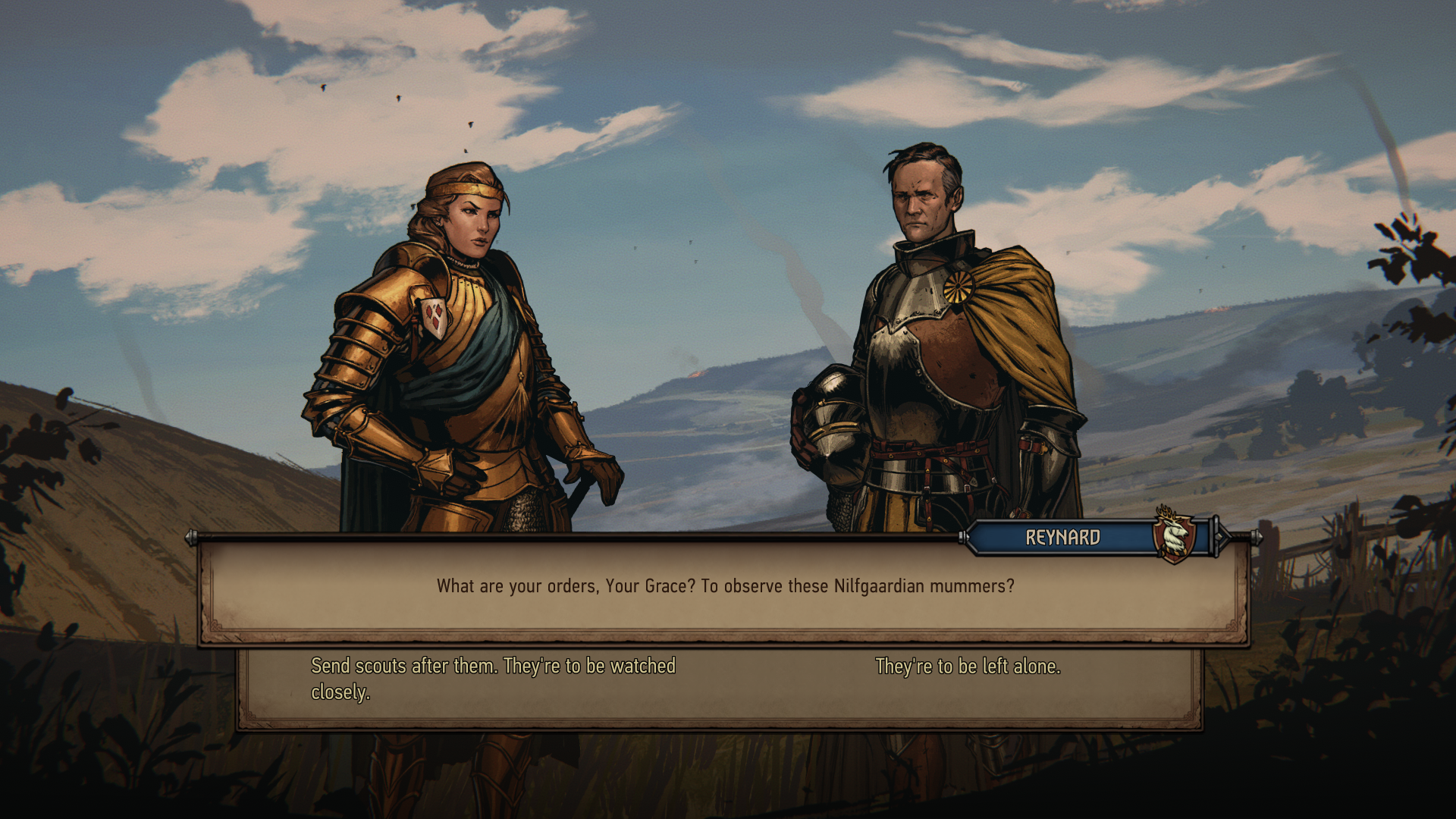
Roleplay your choices
Like Geralt of Rivia, Queen Meve of Lyria has a lot of important choices to make during the course of her adventure. As you journey through the world, you'll interact with dozens of characters, from your own royal retinue to the downtrodden townsfolk you meet along the way. As you converse with them, you'll have to choose your responses. Will you be sympathetic to your advisor's tale of woe, or try to get him to focus on the present? Do rebellious peasants deserve punishment, or sympathy? Can you stop your pursuit of marauding bandits long enough to bless a wedding celebration? Your choices will have costs, usually in terms of resources, as well as benefits, usually in the form of morale.
Credit: CD Projekt Red
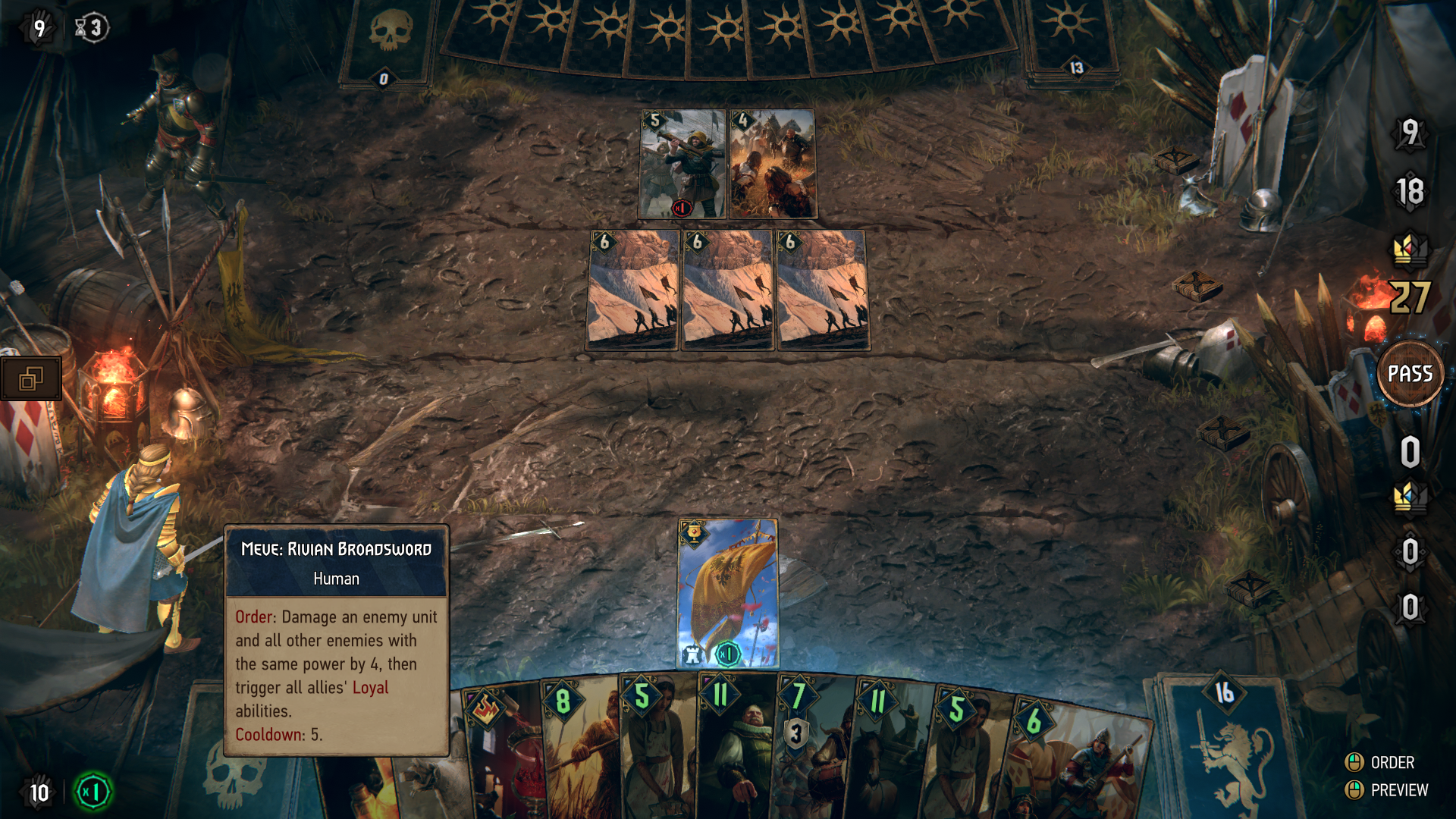
Choose (and use) your leader ability
Queen Meve is not content to lead from the sidelines. She rides into combat with her soldiers, which means you're able to call upon her leader ability at least once per battle. By default, she can buff a unit's attack and defense power, then wait three turns before doing it again. But as you go through the game, you'll be able to equip additional weapons and upgrade her skills, which can change her leader abilities and reduce the cooldown for using them. Using leader abilities doesn't cost any extra resources, and can very often give you an early advantage in battles. There's no real reason not to use them, and every reason to upgrade them as frequently as possible.
Credit: CD Projekt Red
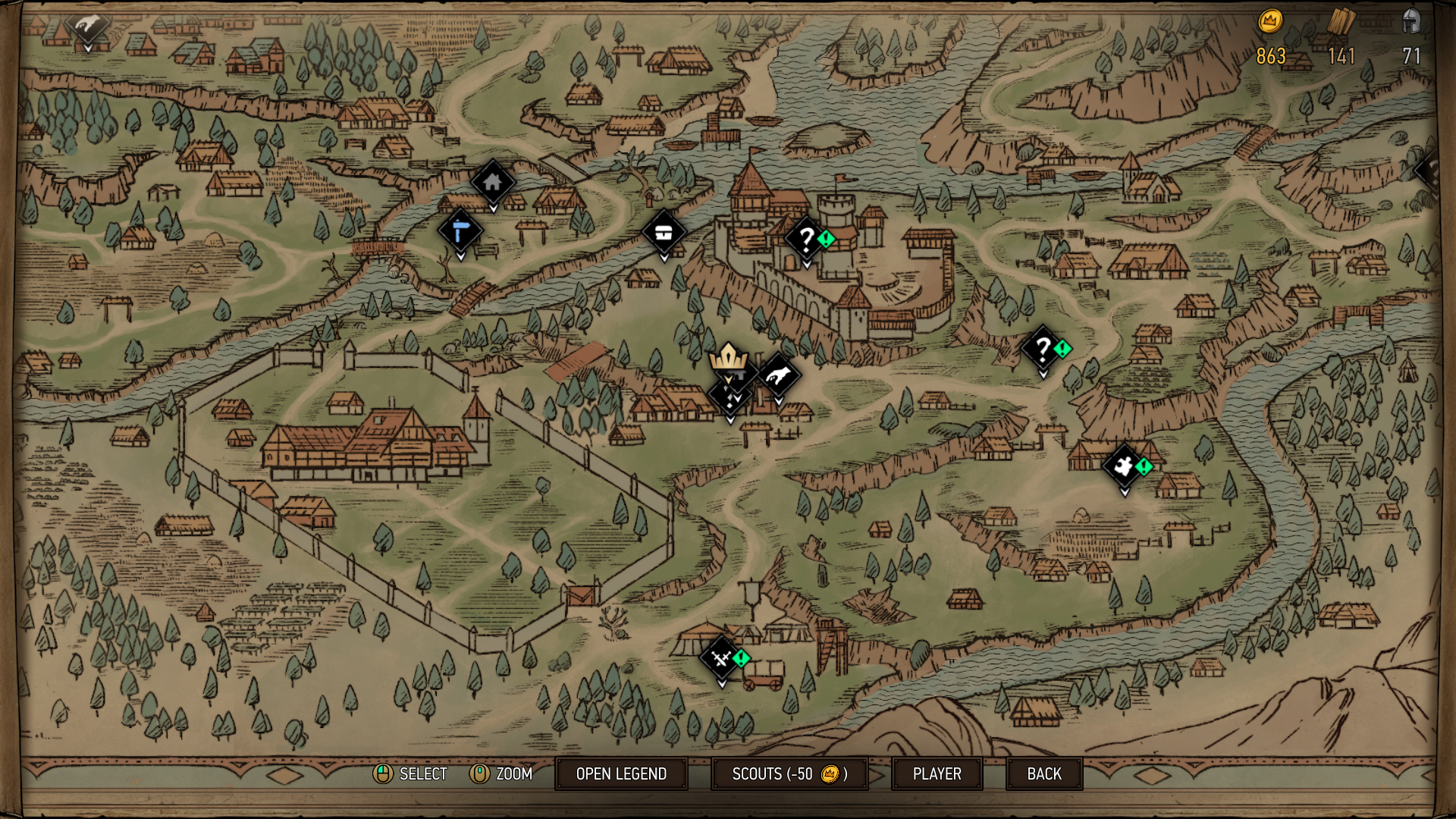
Tackle side quests at your own pace
Like previous Witcher games, main quests in Thronebreaker are usually tailored to where you are in the game. Some are easy, some are difficult, but almost all of them are doable with the tools you have at your disposal. Side quests, on the other hand, can be deviously tough, particularly if they require a combination of cards you haven't gotten yet. It doesn't hurt to try out a tough battle a few times, but if you suspect that you don't have the right tools to tackle it yet, you may be right. You can always come back later; most side quests reward you with resources, which are easy enough to acquire elsewhere if you just keep playing.
Credit: CD Projekt Red
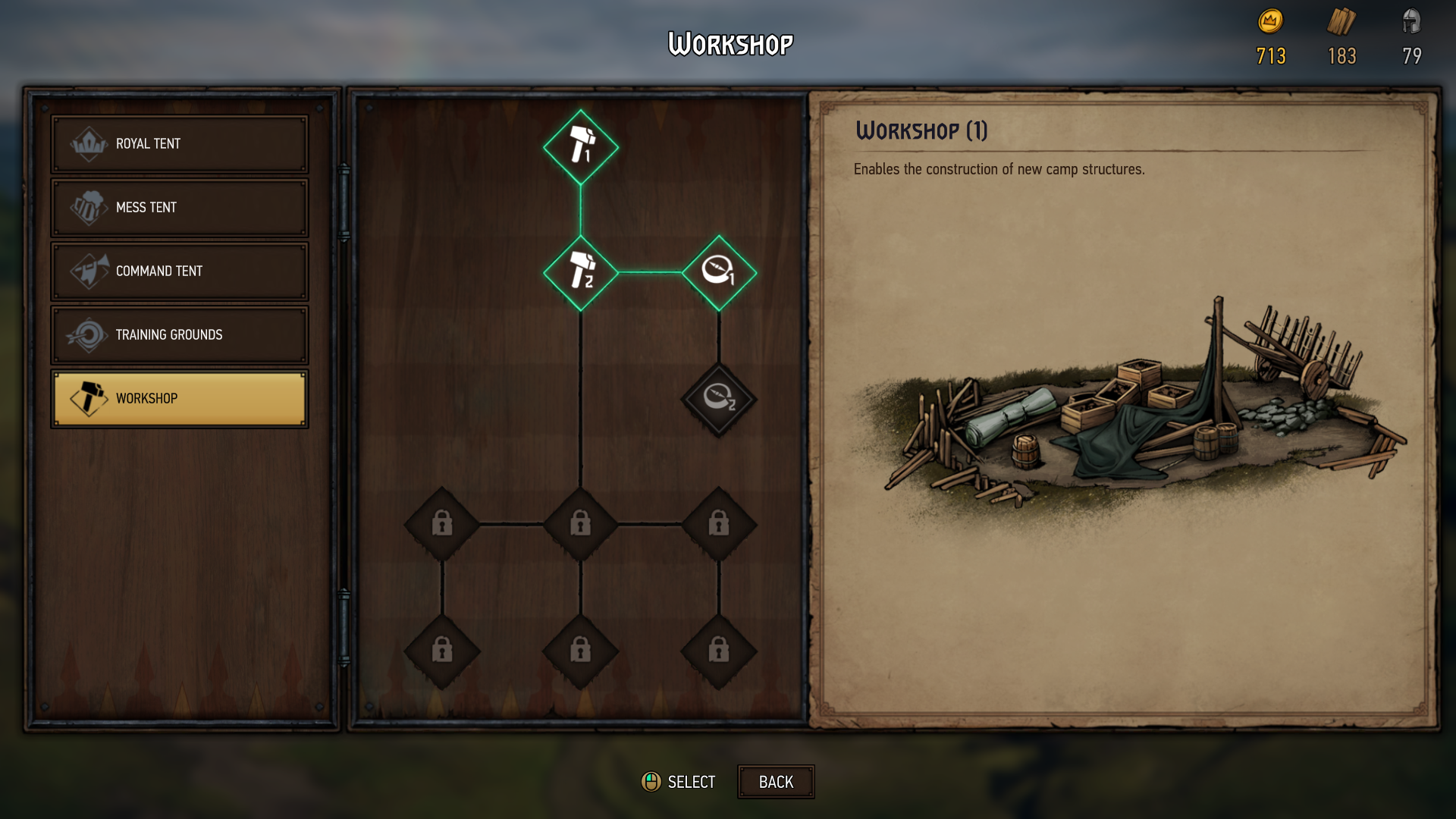
Spend resources wisely
While Thronebreaker has a surprisingly detailed world for a card-battle game, it's still much more limited than the huge open or semi-open worlds from the previous Witcher games. That means that you can very easily exhaust all the resources in a given area, locking yourself off from new ones until you pass through a plot mission bottleneck. The game is not punishingly difficult, so you can never really get game-breakingly stuck. But at the same time, it's worth investing your resources only in the skills that you're really going to use, rather than whatever you can afford the soonest. When you're flush with loot, you can go back and get the rest.
Credit: CD Projekt Red
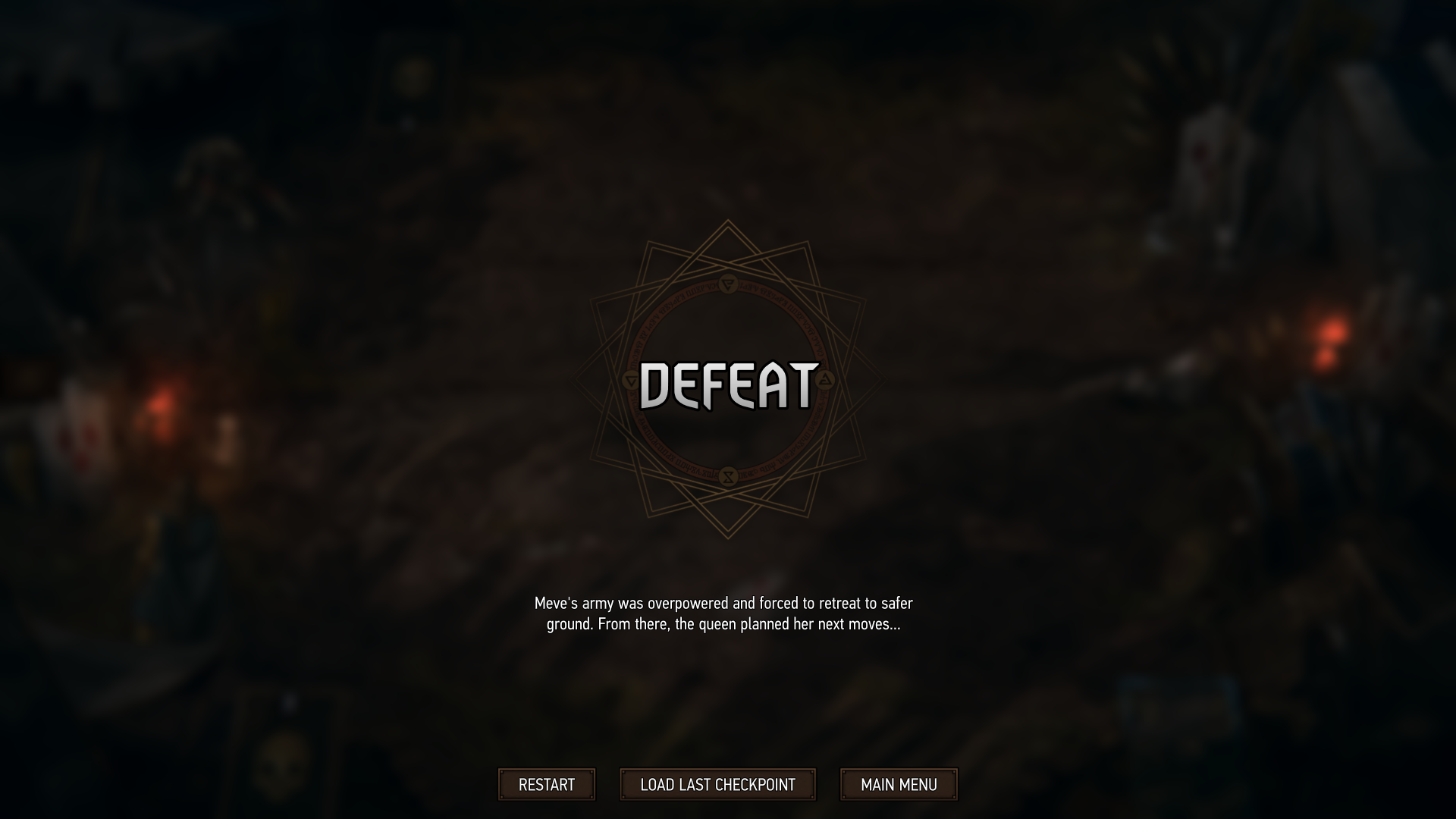
Don't be afraid to fail
Thronebreaker is challenging sometimes, but it's never punishing. If you lose a battle, you can retry immediately. If you decide that you'd rather come back and tackle it later, you can reload your most recent save — which is almost certainly seconds before you decided to enter combat. As such, there's no harm in trying any combat once or twice, even if you haven't found every hidden doodad or completed every optional objective along the way. Trying a tough battle and failing a few times is actually a great way to gauge what you're up against, and determine what new cards or upgrades might help you succeed the next time around.
Credit: CD Projekt Red

Marshall Honorof was a senior editor for Tom's Guide, overseeing the site's coverage of gaming hardware and software. He comes from a science writing background, having studied paleomammalogy, biological anthropology, and the history of science and technology. After hours, you can find him practicing taekwondo or doing deep dives on classic sci-fi.
 Club Benefits
Club Benefits










